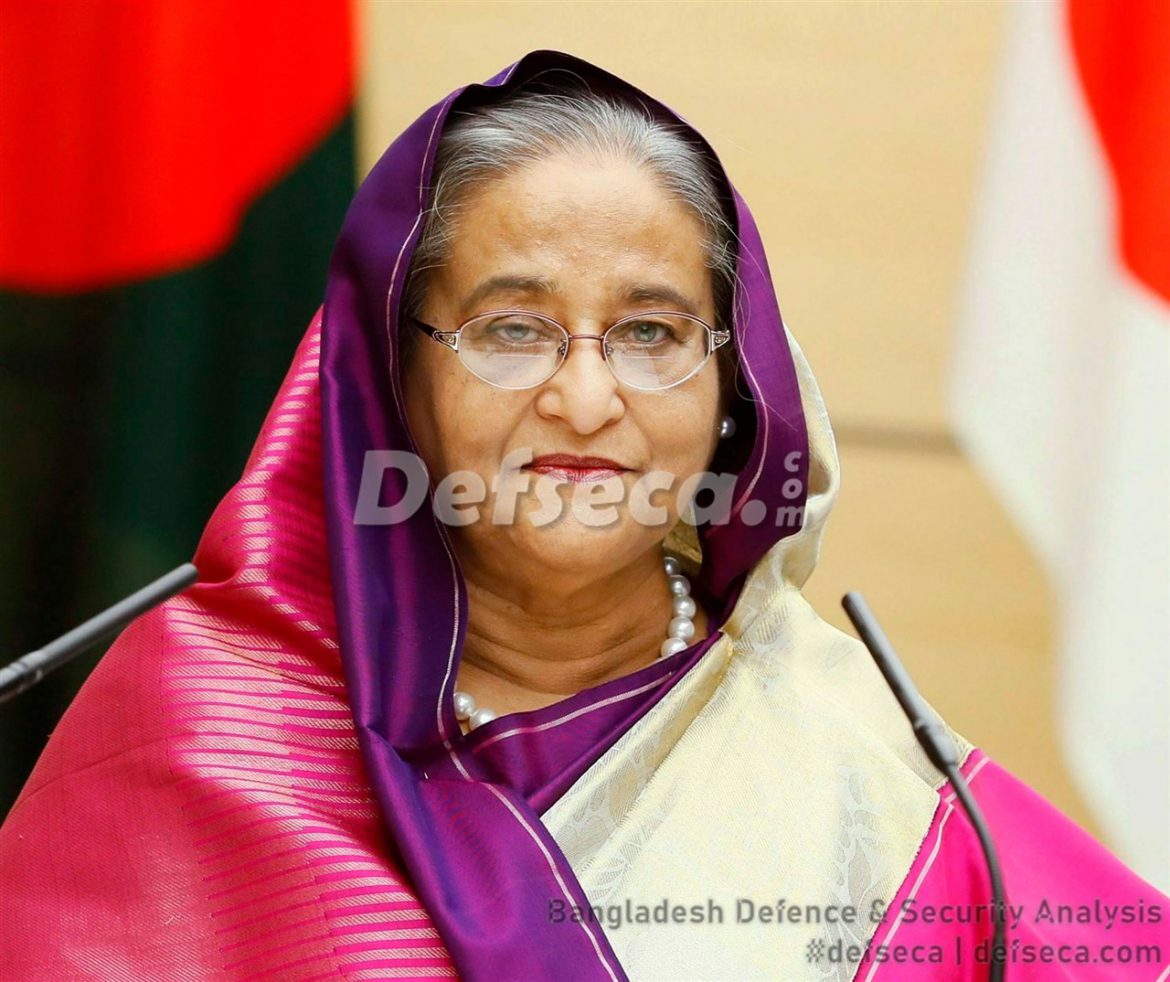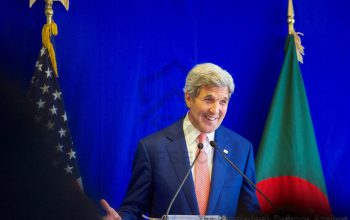Sheikh Hasina offered India a complete assurance on its security concerns about the secessionists in the north-eastern states or the Seven Sisters using Bangladesh’s territory for their destructive activities immediately on her assuming office in January 2009. She offered land transit in the name of connectivity subsequently, conscious that the concessions were extremely important to India. She offered the concessions with the vision to bring about a paradigm shift in Bangladesh-India relations expecting that her vision would encourage India to reciprocate on issues of interest to Bangladesh such as water sharing, trade, border killings, et cetera.
More than a decade has elapsed meanwhile during which India has largely failed to match Hasina’s vision. There has been zero movement on water sharing and no benefit has thus far come from land transit that was supposed to bring Bangladesh fabulous economic benefits as the connectivity hub of the region. Analysts of Indo-Bangladesh relations have been left wondering why India being the much bigger and more powerful neighbour has failed to match the vision of a much smaller and weaker neighbour. Some analysts believe that perhaps India did not fail and that it viewed its relations with Bangladesh differently. Revisiting the history of Bangladesh-India relations particularly India’s role in Bangladesh’s liberation war would clarify the question at a time when Bangladesh-India relations appear to have hit a roadblock.
It was not easy for India to be directly involved in the Bangladesh liberation war when it started. The war occurred during the cold war when the sovereignty and territorial integrity of a member state of the United Nations was sacrosanct. Biafra’s attempt to become independent was brutally crushed in pursuance of that reality. The world did not lift a finger for Biafra because it was a matter of Nigeria’s sovereignty and territorial integrity. India thus limited its involvement in the Bangladesh liberation war when it started to be a sanctuary to freedom fighters or Mukti Bahini and supplying them with an an inadequate amount of arms and ammunitions.
India intervened directly at the fag end of the war after the Mukti Bahini had weakened the Pakistani military considerably. India took two steps before interfering directly. First, it signed the Treaty of Friendship with the Soviet Union in August 1971 to strengthen its position internationally. Second, Indira Gandhi visited several European countries towards the end of October and early November and convinced their leaders that Pakistan had attacked India by pushing 10 million of its citizens to its territory. India Gandhi further convinced them that India would not be violating the principles of sovereignty and territorial integrity of a member state of the United States if it intervened directly in the Bangladesh liberation war to send the refugees back to their homeland.
Thus, India formed the Mitra Bahini or the Joint Command of Indian Armed Forces and the Mukti Bahini under Lieutenant General Jagjit Singh Aurora on November 21, 1971. India thereafter engaged itself in the third India-Pakistan war on December 3, 1971. The war ended on December 16 with the surrender of the Pakistan forces in Dhaka on the war’s eastern front leading to the liberation of Bangladesh on December 16, 1971.
India thus played a decisive role in Bangladesh’s independence. Bangladeshis across their political divide have acknowledged India’s role gratefully although they also believed and continue to do so that they would have achieved their independence even if India had not intervened but that would have taken much longer than the nine months in which India helped them to win their liberation. The Awami League’s call for independence united all Bangladeshis as a monolith like a few other liberation wars in history that had made Bangladesh’s liberation inevitable and just a matter of time.
India, however, was afraid that if it allowed the war to linger, the leadership would not have remained with the Awami League that it did not want. India never forgot its role in Bangladesh and it did not allow Bangladesh to forget it either. India made a major mistake out of such a mentality when it started relations with an independent Bangladesh. It chose the Awami League as not just its favourite; as the years passed by, it became an open secret that India wanted the Awami League to be in power and was willing to interfere in the country’s politics to see its favourite political party in power and to retain it once in office.
Bangladesh’s national election in 2014 flagged India’s abnormal ‘all eggs in one basket’ policy and why it was not the right. The visit of the Indian foreign secretary Sujata Singh to Dhaka just before the elections and the details of her meeting with president Ershad that the latter released almost verbatim to the media documented India’s design to help the Awami League return to power through an apology of elections and keep the BNP and its allies out. That was one of the most blatant examples of interference of a bigger and more powerful neighbour in the affairs of a smaller and less powerful one in history.
In retrospect, India’s interference in the 2014 elections destroyed the country’s hopes of emerging as a liberal democracy at a time when it could have if New Delhi had encouraged the Awami League to hold free and fair elections that it had the ability to do, instead of interfering to the contrary. That interference created in the Awami League a dependence on New Delhi for returning to power without legitimate elections that was not good for either country and unhealthy for conducting bilateral relations, a point that was proved unequivocally when the Awami League was in more desperate need of Indian help in the 2018 elections and developments thereafter.
The BJP-led government did not come to the Awami League’s assistance as the Congress in 2014. Instead, it asked the Awami League to hold the elections with all political parties. The BJP believed that the Awami League would return to power anyway and come back to it. The Awami League returned to power as New Delhi thought it would but it did not go back to it. Instead, a week after returning to power, Hasina dropped many pro-Indian heavyweight ministers from her new cabinet much to New Delhi’s bewilderment and disbelief.
New Delhi subsequently downgraded Hasina’s visit to India in July 2019 from a state visit to an official one. Subsequently, the Awami League went deeper towards China to the extent that China has now occupied the strategic space that New Delhi had vacated albeit inadvertently or perhaps due to failure of its intelligence or from a sense of overconfidence.
Meanwhile, Dhaka-Islamabad relations are thawing, after being in the cold storage for the past few years due partly to New Delhi’s encouragement. Pakistan’s prime minister Imran Khan called Sheikh Hasina this week to inquire about the pandemic and the flood, a call in which Indian media have sensed a Chinese-encouraged Bangladesh-Pakistan plot against India. A human chain in Dhaka to protest at the recent Chinese attacks on India and the death of Indian soldiers drew only a handful, underlining the fact that India’s acceptance in Bangladesh has now hit a nadir that is obvious from the political distance between New Delhi and Dhaka while an AL government is in power in Bangladesh.
The ball, as the cliché goes, is in India’s court to find and address why even with an Awami League in power, there is such a distance for which its popularity in Dhaka has fallen to an all-time low. India must keep in mind that it helped Bangladesh in 1971 to emerge as a democratic country and yet helped destroy democracy there in 2014. India must stop playing favourites in Bangladesh’s highly partisan politics and keep the history of Bangladesh’s emergence in the library. And India should give Bangladesh space to pursue an independent foreign policy keeping in perspective that China has stepped into Bangladesh in a major way and according to the grapevines may have weakened its influence significantly.
And while addressing the above for better relations with Bangladesh, the BJP-led government should focus on two more issues. First, why it failed to reciprocate on Sheikh Hasina’s vision and concessions and, second, what was it thinking when its leaders and supporters were using Bangladesh’s Muslim majority as a bait for Hindutva.
Written by: M Serajul Islam




